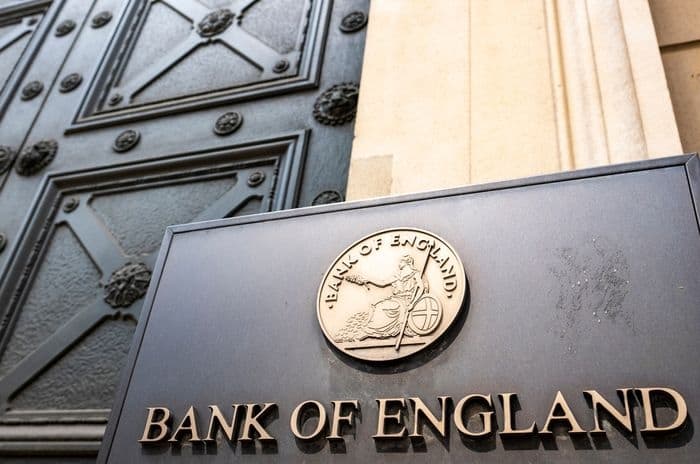Home > Money > News > Base rate rise set to have modest impact
Base rate rise set to have modest impact
THE Bank of England are expected to raise interest rates tomorrow for the first time in ten years, with the base rate predicted to increase from 0.25% to 0.5%.

In absolute terms, the change may not be much, yet the UK's current financial climate - which sees people borrowing increasing amounts just to make ends meet and saving at an all-time low - means it could have a significant effect.
Yet while the current climate would suggest that things will become even harder for some people after a rate rise, its impact will in fact be very slight for most people.
Mortgages
Given that the UK's economic situation is somewhat precarious at the moment, a base rate rise might initially seem worrying. However, one saving grace would be that the expected rise is of only a quarter of a percent, from August 2016's historic low of 0.25% to 0.5%.
Because of this, the cost of borrowing may not rise by a massive amount in monetary terms.
For example, Nationwide calculate that monthly repayments for the average mortgage would increase by £15 to £665, making the average mortgage £180 more expensive per year.
Their chief economist, Robert Gardner, says, "a 0.25% increase in rates is likely to have a modest impact on most borrowers who are on variable rates".
Added to this, he points out that only 40% of mortgage holders are on such variable rates, with the rest on fixed rates, meaning they'll be protected from a base rate rise for as long as their fixed period lasts.
Still, for those looking to hop onto the housing ladder, they'll find the cost of borrowing more expensive, although it's unlikely that any lender will raise their standard mortgage rates by anything more than 0.25%.
Credit cards
Much the same can be said for borrowing via credit cards, although it's worth noting that card interest rates aren't directly linked to the Bank of England's base rates like mortgages are.
Instead, they go up and down in accordance with how lenders evaluate risk factors, such as the creditworthiness of borrowers and the economic circumstances that help or hinder them in paying off card balances.
Nonetheless, the fact that the UK's "credit binge" has been rising to alarming levels, and the fact that as many as three million people have been struggling with debt and repayments as it is, would indicate that a base rate rise would increase "risk" and therefore prompt many lenders to bump up the rates of their cards (and loans).
In fact, a couple of credit card issuers - Halifax and Barclaycard - have moved in recent years to directly link their card rates to the base rate, so it's clear in their cases at least that customers will have to pay more to borrow the same.
As an example of the kind of thing customers will see, a credit card with APR of 19.9% will see the following increases:
| Base rate | Representative APR (variable) | Balance | Monthly interest payment |
|---|---|---|---|
| 0.25% | 19.9% | £1,200 | £19.90 |
| Base rate | Representative APR (variable) | Balance | Monthly interest payment |
| 0.5% | 20.15% | £1,200 | £20.15 |
Put simply, the increase would be 25p for a balance of £1,200, although this is assuming that the balance is paid off after a single month. Assuming that it remains entirely unpaid for a year (and ignoring monthly minimum repayments), the compound interest with a base rate of 0.25% would be £1,692.74, while with a base rate of 0.5% it would be £4.10 more expensive (£1,696.84).
Interest rates set to rise, but so what?
Once again, this isn't a massive difference, and it underlines how a base rate increase of 0.25% won't have a significant effect for most people.
That said, enough people are already feeling the strain of rising inflation and struggling wages for a base rate rise - no matter how slender - to make things more difficult for them, especially if they have to pay an extra £180 (or more) a year on their mortgage.
However, as a final note, it's worth pointing out that a rise would have a few positive effects. Aside from keeping inflation down by suppressing spending, the most notable would be a modest increase in the interest rates on savings accounts.
For instance, Santander offer only 0.15% on their eSaver account at the moment, but with a rate rise this could move to 0.30%, earning customers an extra £1.50 a year in interest on a £1,000 deposit.
Okay, so this is almost a laughable rise, but at the very least it reiterates once again that a 0.25% increase to the base rate is, on the whole, not going to change an awful lot, for better and for worse.
Receive consumer updates that matter in our newsletter
Receive consumer updates that matter in our newsletter

We are independent of all of the products and services we compare.

We order our comparison tables by price or feature and never by referral revenue.

We donate at least 5% of our profits to charity, and we aim to be climate positive.
Latest News

26 October 2022
Cost of living showing worrying trends in affordability
16 June 2022
FCA warn lenders on cost of living difficulties


